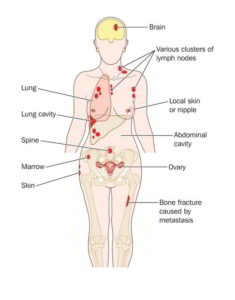Overview
Over the past few years, researchers have been trying to find new treatment protocols for colorectal cancer by combining anticancer drugs.
Fortunately, these efforts seem to be yielding some great results! A few months ago, a phase-two clinical trial was conducted to see the efficacy of Erbitux and Bavencio in treating metastatic colorectal cancer.
The first drug, Erbitux, already has approval for the treatment of colorectal cancer. On the other hand, Bavencio is still in clinical trials to evaluate its efficacy on this type of tumor. However, it is the first-line maintenance treatment already approved for adults with advanced urothelial carcinoma.
In this article, we will briefly cover the results of the clinical trial to unveil the real potential of this combo.
What does the new trial tell colorectal cancer patients?
The phase-two clinical trial using a combination treatment of Erbitux and Bavencio revealed its results a few weeks ago.
The trial implemented this treatment in 77 individuals who had the diagnosis of metastatic colorectal cancer. Note that 49% of these patients were treated with Erbitux before, and 51% had received Vectibix (approved for treating patients with wild-type RAS metastatic colorectal cancer) in addition to chemotherapy during their first line of treatment for their metastatic condition.
The inclusion criteria for this trial were:
- Histological diagnosis of colorectal cancer
- Previous treatment with a first-line chemotherapeutic agent plus an EGFR inhibitor, like Erbitux or Vectibix, that produced a highly positive response
In other words, patients needed to have a proven diagnosis of colorectal cancer using pathological evidence, not just clinical or imaging findings. Secondly, patients need to have received treatment before that consisted of an antitumor drug plus an EGFR inhibitor.
Once approved for the trial, they received 400 mg/m2 followed by a weekly 250 mg/m2 dose of Erbitux. Patients also received 10 mg/kg of Bavencio every 2 weeks.
Researchers set the Survival as the primary endpoint of the study. Secondary endpoints were time-to-disease-progression, percentage of individuals who achieved stabilization of their lesions and/or size reduction of lesions and safety.
After all of this scientific talk, let us see the actual results of this trial, and why we should pay attention.
Median Survival was 11.6 months and reached 17.3 months in patients with baseline RAS/BRAF WT ctDNA.
As for individual cases, here are the results:
- 1 patient achieved a complete response, meaning there was no sign of the cancer
- 5 patients achieved a partial response, meaning the lesions of the tumor decreased in volume
- 44 patients had stable disease – out of these patients, 36% were stable for 4 months or more
Common severe side effects were cutaneous eruption (14% of individuals) and diarrhea (4%).
Takeaway message for colorectal cancer patients
Combining Erbitux with Bavencio revealed highly positive results for the treatment of metastatic colorectal cancer.
We hope that this article helped you grasp the potential value of this combination treatment.
Speak with your doctor to see whether you are a candidate for this treatment.
Talk to us so see if we can help you to actually get the most advanced treatments
TRIAL•IN Pharma
Because we, do not give up on life!
Contact us 24/7 –
Call center +44.2082.426.039
References
Chidharla, A., Parsi, M., & Kasi, A. (2017). Erbitux.




















